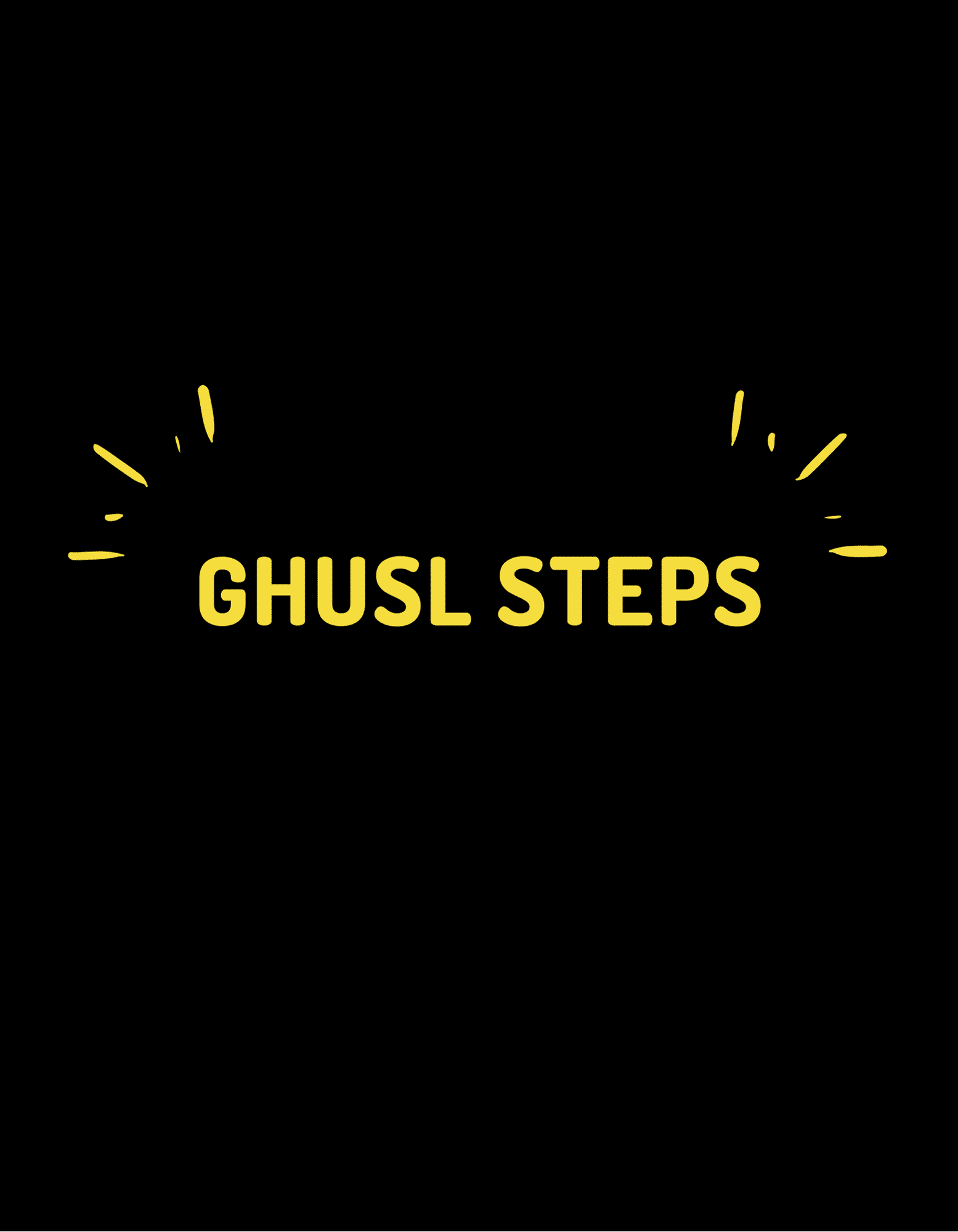Before rituals and prayers, Muslim adults conduct an ablution called Ghusl. Unlike the partial-body tradition, wudu is a full-body ritual that men and women must perform to be deemed pure in body following specified activities. To eliminate pollutants, the entire body must be washed and rubbed clean during this ritual.
Ghusl
With Islam, ghusl is the “main ablution,” which comprises washing the entire body in ritually clean (pure) water and is needed for both the living and the dead in certain circumstances.
When a condition of substantial ritual impurity has been incurred, the ghusl, together with a statement of purpose, must be performed: after sexual intercourse, seminal emission, menstruation, or delivery.
A junub (impure) person is unable to do daily ritual prayer, circumambulate the Kabah in Mecca during major and minor pilgrimages, touch or recite the Quran, or enter a mosque.
How to do
How to perform Ghusl? To produce a full ghusl, do that:
- Set a desire to cleanse oneself of major impurities
- Say Bismillah three times and wash your hands, then cleanse any filth from your private parts.
- Perform wudu as though you were praying.
- Pour three times over the head with water, rubbing the hair to ensure that the water reaches the roots.
- Wash the body, ensuring that the water reaches all sections by starting with the right side of the body and working your way to the left, and rubbing it in with your hands to ensure that the water reaches all parts.
Ghusl steps

The ghusl is traditionally conducted before Friday prayer (salat al-Jumah) in the mosque and the two major Muslim holidays and pilgrimages (hajj).
All Muslims must perform ghusl before burial, except martyrs, who are forgiven their sins and thereby cleansed by the manner of their death.
In addition to other cases as well, we have already mentioned to you previously, and in a very straightforward way, the steps of washing, in general, are what we will explain to you as follows:
Taking the Appropriate Precautions
In your heart, make the intention to purify oneself
This may be accomplished simply by telling yourself that you are conducting this ritual for Allah’s pleasure.
It is unnecessary to say this aloud; merely thinking it to yourself is sufficient.
If possible, execute the rite in a secluded location
In Islam, exposing the lower part of your body to others is considered a sin.
The simplest method to do this is to execute the ceremony in your restroom, with the door shut and locked.
You are allowed to expose yourself to your husband or wife as an exception to this prohibition.
Locate a clean water source that you can utilize
This source can include rain, wells, springs, the sea, river snowmelt, or pond water, in addition to a regular shower or bath.
However, do not use unclean water or water previously used for another purpose.
Say “Bismillah” out loud
This verbal indication that you are practicing ghusl for Allah’s pleasure.
This serves as a gentle reminder to yourself that this is a religious ritual, not merely a bath.
Washing Your Body during Ghusl
First, wash your hands up to and including your wrists
Wash and massage your right hand thoroughly, careful to get in between each finger.
Do this three times, then do the same with your left hand.
Wash your private parts
With water, wash away any traces of sperm or vaginal discharge from your private areas.
Wash any other portions of your body that have been exposed to these fluids, such as your hands.
To properly detoxify oneself, repeat this process three times.
Three times saturate your head, face, and neck with water
When you are in Ghusl, make sure you wash your head well enough, so the water reaches the skin on your scalp.
If you have a beard or other facial hair, you should also wash below.
Make sure there are no dry spots on your head.
If you have a beard, take a handful of water and massage it through it from below your chin.
As part of your head, be sure to cleanse your ears. However, you do not need to wash the insides of your ears during this procedure.
Then, from shoulder to foot, wash the whole right side of your body
Rub the water all over the right side of your body with your left hand, being careful not to leave any areas unclear.
Carry on with the process on your left side of the body.
If desired, dry yourself off with a clean towel before dressing
After you’ve finished the ghusl, you’re not required to dry off.
If you decide to use a towel to dry your body, make sure the towel is entirely clean.
Otherwise, you’ll have to start from the beginning!
When Should You Perform Ghusl?
In circumstances where ghusl is only favored, consider practicing it:
Ghusl is not necessarily essential in some instances but is strongly encouraged in others.
It is advised in the following situations:
- When a non-Muslim becomes a Muslim.
- Before the beginning of Friday prayers.
- Before beginning the Eid prayers.
- After a corpse has been washed.
- Before embarking on a Mecca pilgrimage.
Remember that ghusl is necessary after monthly bleeding has stopped
O this as soon as your menstruation has ended, preferably before your following prayer.
If you see repeated spotting or bleeding, repeat ghusl to cleanse yourself once the bleeding has stopped.
Any Muslim who has died of natural reasons should be washed as quickly as possible
This can be done as part of the deceased’s funeral ceremonies and should be done as soon as feasible following their death.
It should be noted that people who die in war should not be bathed in the ghusl rite.
It’s worth noting that Ghusl is necessary after a satisfying ejaculation
This includes ejaculation resulting from a wet dream or ejaculation following sexual contact.
You do not need to conduct ghusl if semen is discharged without any accompanying pleasure.



